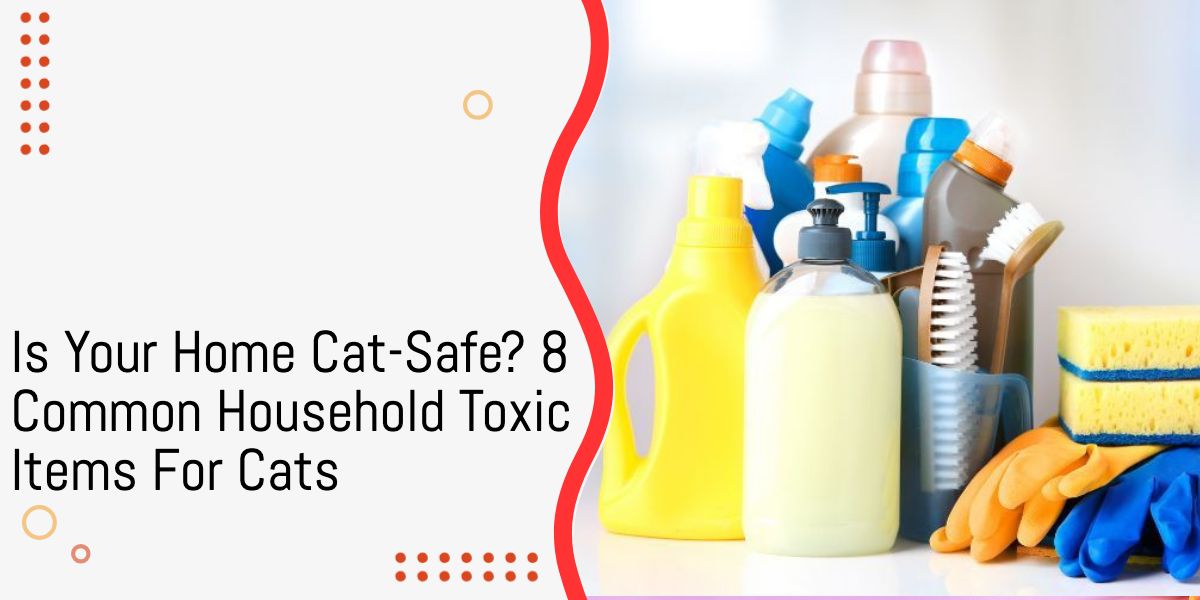Cats do a pretty good job avoiding toxic substances. If an item smells off or looks suspicious, they’ll likely steer clear of it. It’s an instinct that serves them well in the wild, where avoiding potentially harmful substances can be the difference between life and death.
Still, this doesn’t mean we should be complacent about keeping toxic household products away from them.
Here are some common household toxic items for cats you should avoid:
Table of Contents
1. Anti-freeze
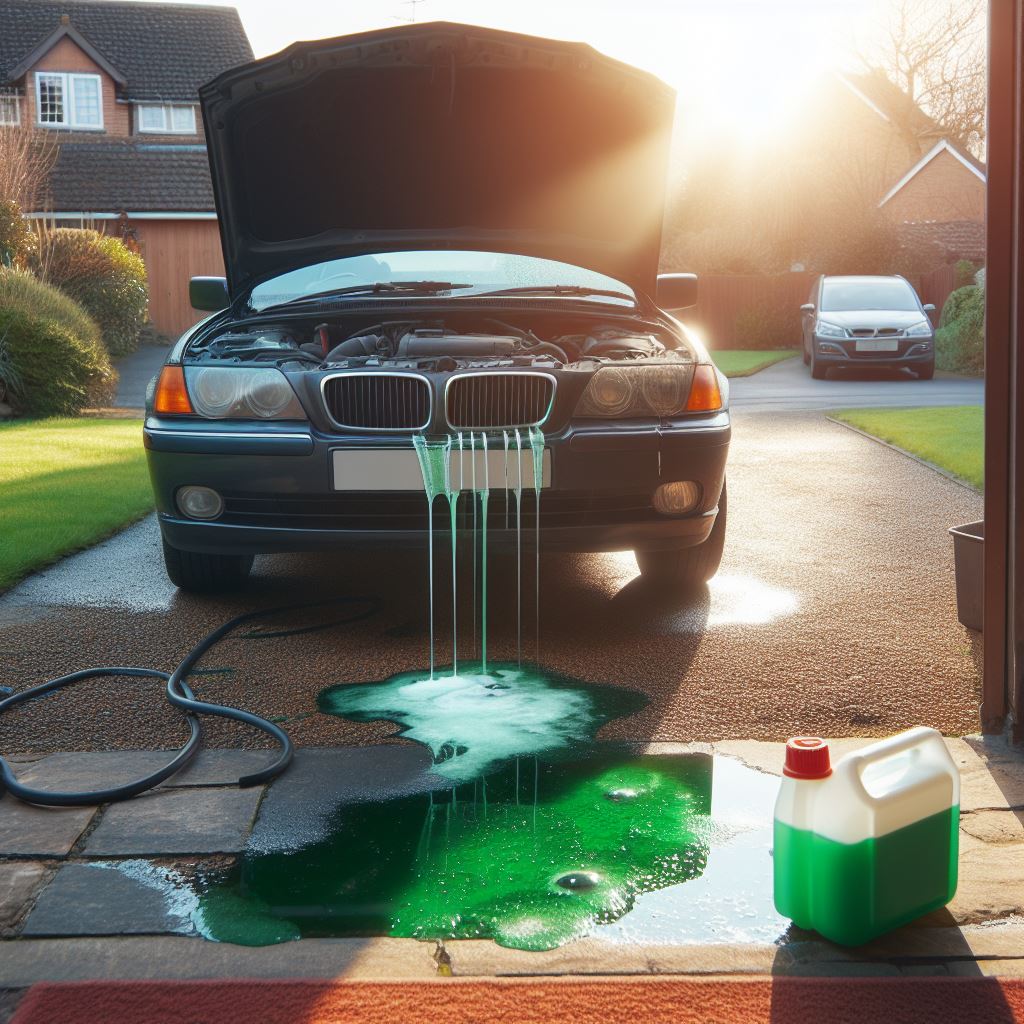
Antifreeze is notoriously toxic to both humans and animals.
Cats, in particular, are at risk of antifreeze poisoning due to their grooming habits. If they step on a spill or brush against a surface contaminated with antifreeze, they may inadvertently ingest it while grooming themselves.
The problem here is that even a small amount can be lethal to cats. Ethylene glycol, the main ingredient in antifreeze, not only damages a cat’s kidneys but also disrupts the central nervous. Without immediate treatment, a cat may experience vomiting, lethargy, seizures, and coma.
Aside from antifreeze, products containing a high ethylene glycol concentration include hydraulic brake fluid, windshield washer fluid, and heat transfer fluid.
When working with these fluids, make sure to clean spills immediately and keep them out of reach of pets and children.
2. Lily Plants

Lilies are extremely toxic to cats. Ingesting any part of the plant even in small amounts can be fatal.
Lilies produce toxic alkaloids that help them fight off insects, bacteria, fungi, and other organisms. These alkaloids are present in various parts of the lily plant, including the petals, pollen, stem, and leaves.
When consumed, these toxins can cause severe poisoning and acute kidney failure.
Unfortunately, some cats are attracted to the scent and taste of lily plants, making accidental ingestion a common occurrence.
Because of this, it’s important to keep lily plants out of reach of cats. Better yet, don’t bring them into your home at all.
If you believe your cat has ingested any part of the lily plant, bring him to the vet right away. Symptoms of lily poisoning include lethargy, vomiting, drooling, loss of appetite, and increased urination.
3. Laundry Detergents
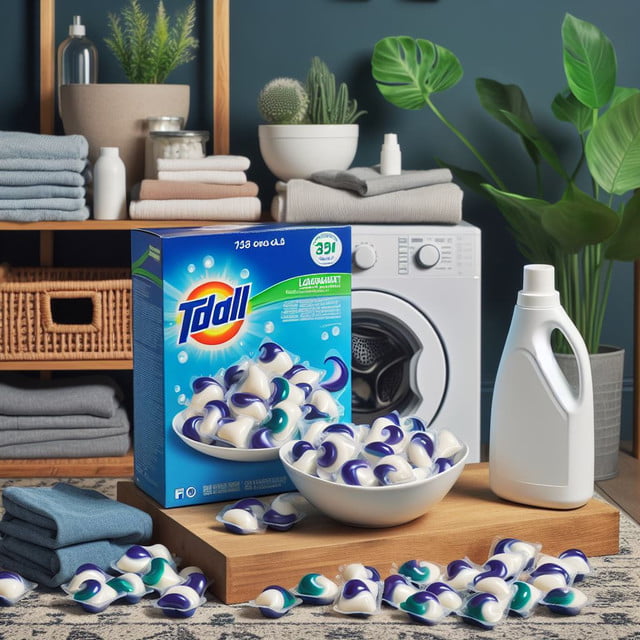
Most household detergents, including powders, cleaning liquids, and pods, contain perfumes, surfactants, and coloring that can be harmful to cats. Some also contain corrosive agents that can lead to internal injuries.
Ingestion of laundry detergents can cause severe gastrointestinal upset, but the real danger comes after vomiting. If a cat inhales the vomited detergent, he can develop a life-threatening lung condition called aspiration pneumonitis.
As with most household cleaners, keep them out of reach of pets and children. Spills should be promptly cleaned as exposure to cats often occurs when they walk through the detergent, only to be ingested during grooming.
If you suspect your cat has ingested or inhaled laundry detergent, immediate veterinary care is crucial to increase his chances of survival.
4. Essential Oils
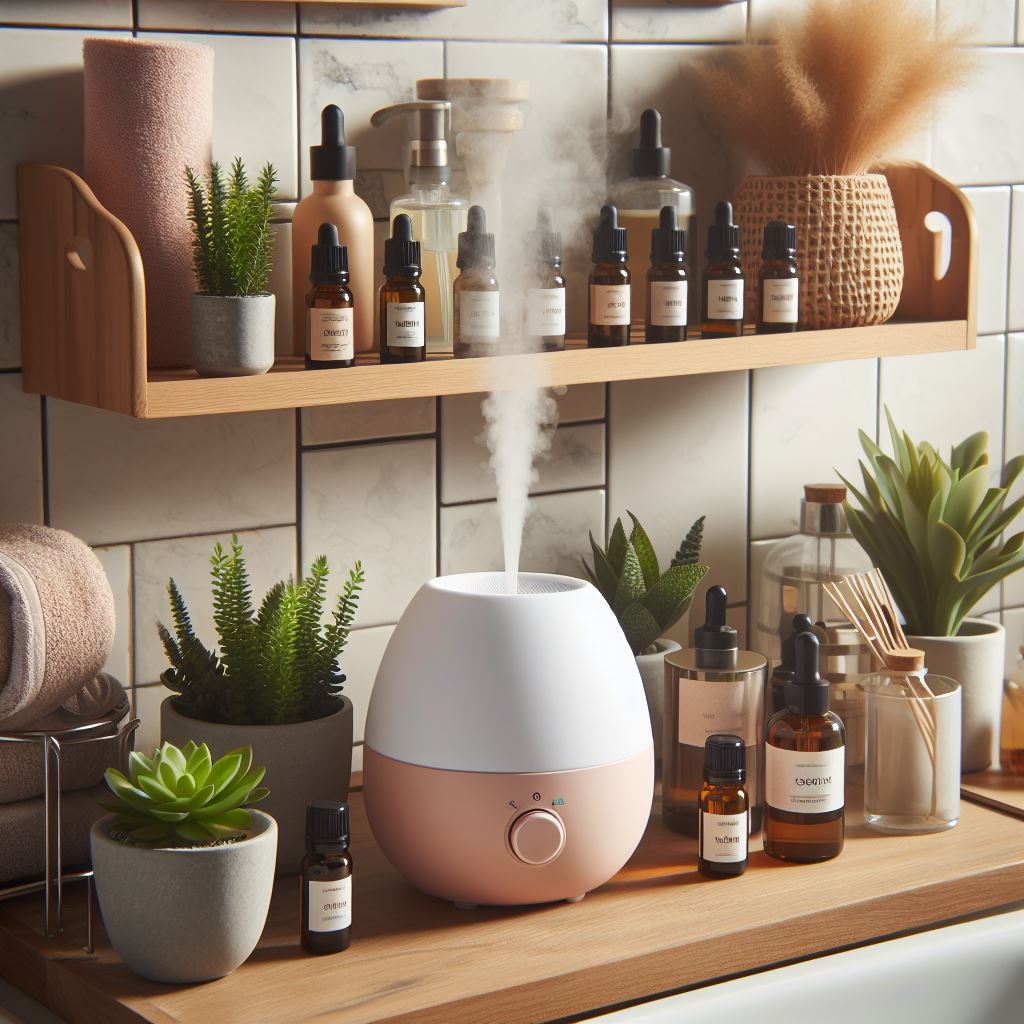
Unlike humans, cats don’t have the necessary enzymes to metabolize compounds found in essential oils.
These compounds can accumulate in their bodies to toxic levels, leading to organ failure.
Their natural grooming habits also place them at higher risk for dermal and oral exposures.
Here’s a list of the most toxic essential oils to cats, according to the Pet Poison Helpline:
- Peppermint oil
- Citrus oil (limonene)
- Sweet birch oil
- Peppermint oil
- Cinnamon oil
- Pine oil
- Tea tree oil (melaleuca oil)
- Eucalyptus oil
- Clove oil
- Pennyroyal oil
Related: Are Cats Allergic to Cilantro? The Definitive Guide for Cat Owners
5. Grapes, Chocolates, and Other Common Food Items

Some human foods are deathly toxic to cats. While certain foods are safe to consume in moderation, others can cause gastrointestinal upset, toxicity, and, in severe cases, organ failure leading to death.
Two popular examples of toxic human foods are chocolate and grapes.
Chocolate contains an ingredient called theobromine, a stimulant that increases heart rate and the loss of bodily fluids.
Theobromine is toxic to humans, too, but we process it much better than cats. It stays in their bloodstream for much longer and can accumulate in dangerous amounts, leading to fatal toxicity.
Cats should also avoid grapes and grape products, such as jams, vinegar, juices, and oils.
Though the danger is less understood than dogs, there have been multiple reports of cat toxicity following the ingestion of grapes. Some suffered from gastrointestinal upset, while others experienced more severe complications like kidney failure.
Common toxic human foods you should never feed your cat include:
- Citrus fruits, including limes, oranges, clementines, and grapefruits
- Coconut flesh and coconut water
- Nuts, including almonds, walnuts, and pecans
- Onions, garlic, leeks, and scallions
- Xylitol, commonly found in peanut butter, sugar-free desserts, and commercial baked goods
6. Human Medications
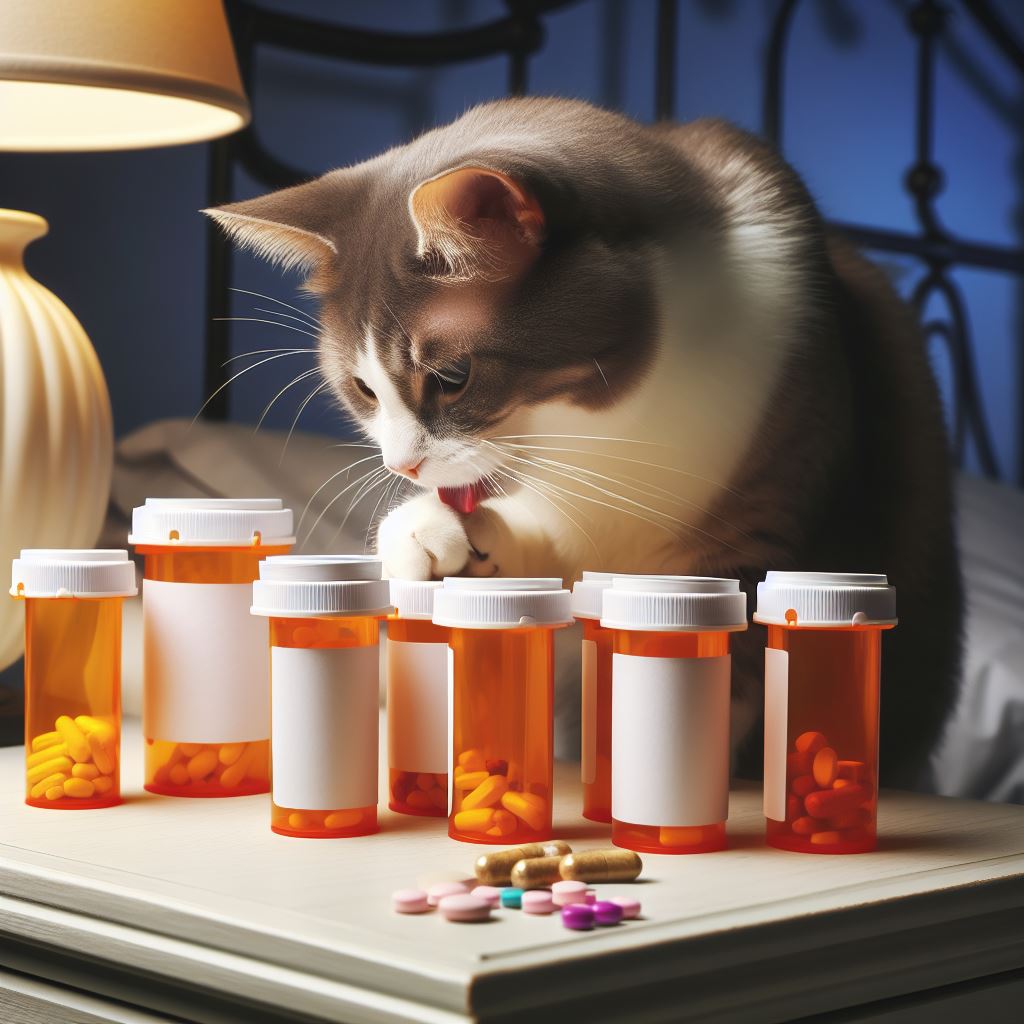
Medications that are safe for humans can be dangerous and sometimes even lethal to cats.
Over-the-counter pain relievers like ibuprofen, naproxen, and acetaminophen are extremely dangerous for cats and can cause severe stomach ulcers and kidney damage.
Acetaminophen—also known as paracetamol—can also lead to severe complications in cats. According to the Animal Medical Center of Chicago, one 325 mg tablet can result in difficulty breathing, vomiting, and swelling of the face. A second dose can be fatal.
You should also be careful with topical creams. Though some are safe when applied topically, problems can occur when cats lick the cream off themselves or their owners.
7. Cleaning Products
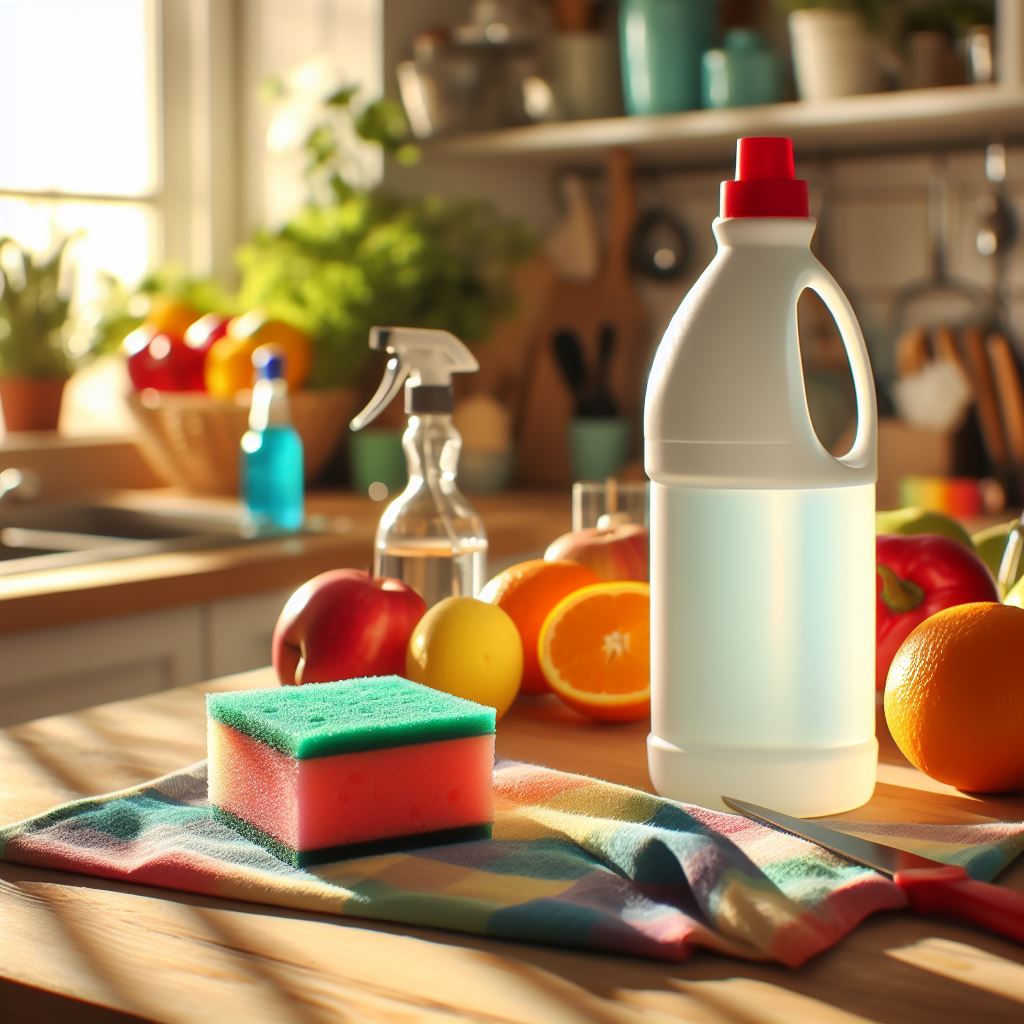
We all love a clean home, but how many of those cleaning products are toxic to cats?
Spoiler alert: almost all of them.
Even seemingly harmless products can irritate their skin and eyes, cause breathing problems, or be poisonous if injected.
Here are some common toxic household products and cleaners to watch out for:
- Drain cleaners
- Disinfectants
- Oven cleaners
- Floor polishing wax
- Glass and mirror cleaners
- Carpet cleaners
- Isopropyl alcohol
- Bleach
The best way to protect your cat from toxic household cleaners is to use natural, chemical-free alternatives. If you don’t have an alternative available, keep the products out of your cat’s reach. Store them away in a cabinet or area where your cat can’t access them.
Also Check: 8 Delicious and Healthy Homemade Cat Treat Recipes
8. Monstera Deliciosa And Other Arums

Many plants in the Araceae family, also known as the Arum family, contain compounds that can be toxic to cats when ingested.
One common household plant under this family is the Monstera Deliciosa, which contains calcium oxalate crystals.
When chewed, these microscopic crystals cause immediate burning pain in the mouth, throat, tongue, and stomach lining, resulting in vomiting and drooling. It’s not as deadly as certain Lily plants, but it can still potentially damage the kidneys when consumed in large amounts.
Toxic plants in the arum family include:
- Philodendron
- Jack-in-the-pulpit
- Calla lily
- Peace lily
- Dieffenbachia
- Elephant ear
- Caladium

